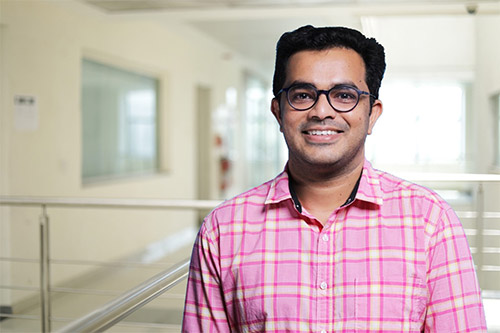 Scientists are working towards quantum technological protocols that can provide multiple sources for information transfer and can bring about fast communication as well as secure encryption techniques that can prevent hacking.
Scientists are working towards quantum technological protocols that can provide multiple sources for information transfer and can bring about fast communication as well as secure encryption techniques that can prevent hacking.
Dr. Rejish Nath, Associate Professor, Indian Institute of Science Education and Research-Pune, a recipient of this year’s SwarnaJayanti Fellowship instituted by the Department of Science & Technology, Government of India plans to use his fellowship to come up with a design for a hybrid integrated quantum circuit or a “motherboard” for quantum technology using atoms possessing electric or magnetic dipole moments. He plans to integrate different components of quantum information processing under a single umbrella, using dipolar systems. The three-basic process in quantum technological systems are “storing” information, “processing” information, and “transfer” information. In a hybrid system, these three processes can be implemented in different components, in their case, particularly in different dipolar constituents.
Dr. Nath and his team have already shown that periodic forcing (varying a system parameter periodically in time) can generate quantum states in an array of atoms with high excited state called Rydberg qubits in a much more controlled manner. These findings will become very vital in developing Rydberg atom-based quantum technologies. Since they produced their finding, several realistic proposals for quantum gates (basic quantum processing units) based on these works have emerged. In another research, the scientists have introduced a new class of dipolar quantum matter-wave, terming as doubly dipolar BEC, and has exhibited exotic features. Both of these were published in the journal Physical Review Letters. The latter work is opening up an entirely new direction in the context of dipolar quantum gases.
The group will expand their work further to design quantum technological protocols in a hybrid dipolar setup constituting both dipolar BEC and Rydberg atoms. Dipolar BEC is the Bose-Einstein condensation (a special state of matter) of atoms, with large dipole moments. Rydberg atoms are atoms in which the electrons are excited to a high energy level. A hybrid dipolar system will provide multiple sources for information transfer. Such a setup will have a lot of applications ranging from fast communication to secure encryption techniques. As society is getting more vulnerable to hackers, quantum encryption may provide us a safe journey.
For more details, Dr. Rejish Nath (rejish[at]iiserpune[dot]ac[dot]in) can be contacted.






























